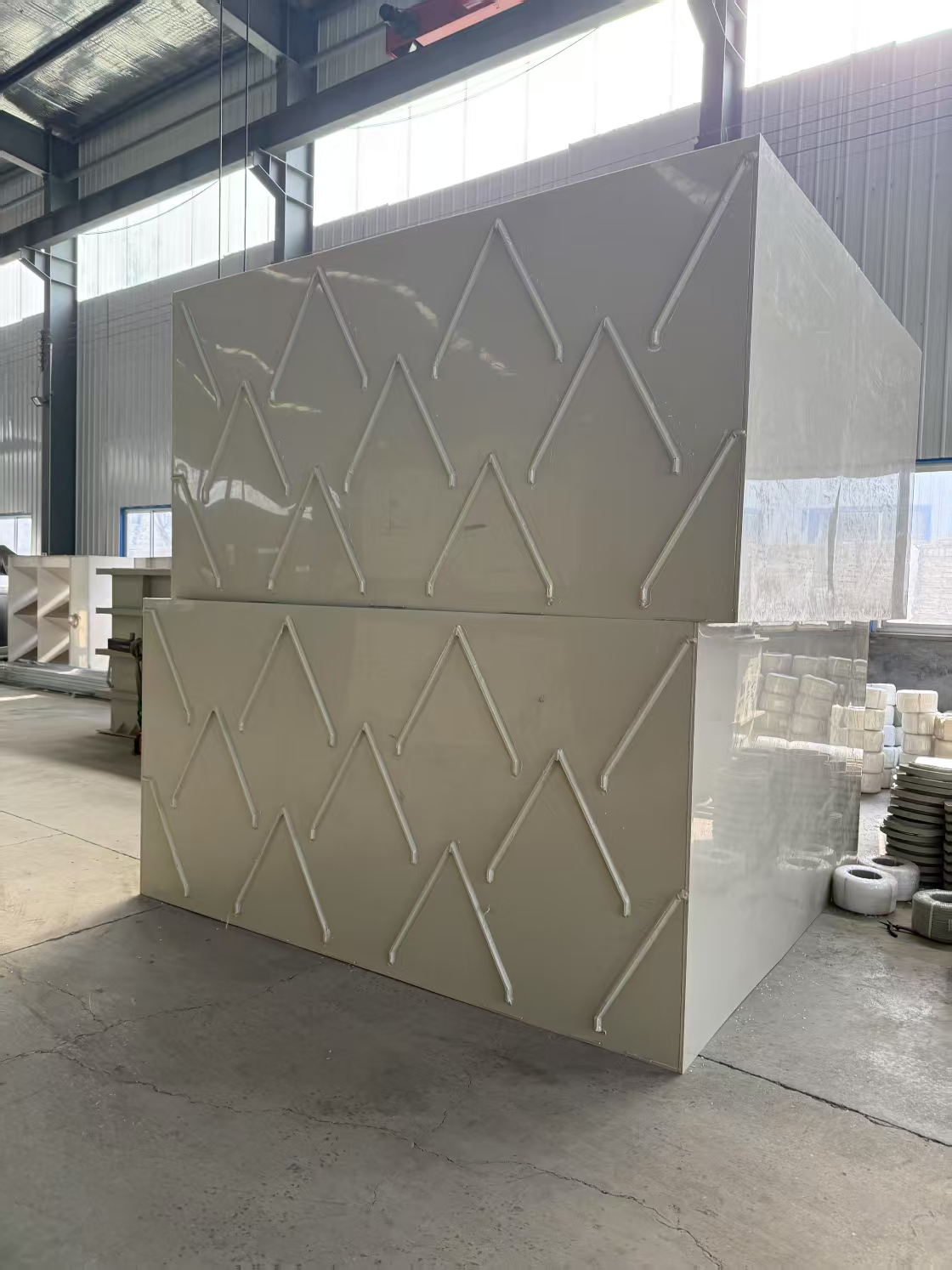PP Pickling Tank is an industrial container made from virgin polypropylene (PP) material, primarily used in the pickling process for metal surface treatment. Its corrosion resistance, lightweight nature, and cost-effectiveness make it a common choice for pickling, cleaning, and electroplating applications. Below is an overview of its key features and applications:
1. Structure and Design
- Material: Constructed from polypropylene (PP).
- Structure: Typically rectangular or custom-shaped, equipped with inlet, outlet, overflow, and heating tube interfaces. Some designs include reinforcing ribs to enhance load-bearing capacity.
- Manufacturing Process: Formed by welding PP sheets, ensuring seamless sealing and leak resistance.
2. Material Properties
- Corrosion Resistance: Excellent resistance to common acids (e.g., hydrochloric acid, sulfuric acid, nitric acid with concentrations ≤70%) and weak alkalis, suitable for pH 1-14 environments.
- Temperature Resistance: Operates effectively between -10°C and 80°C. Insulation or cooling designs are required for high-temperature conditions.
- Mechanical Properties: Lightweight and easy to process but relatively low in rigidity, requiring structural enhancements (e.g., thickening or reinforcing ribs) to improve strength.
3. Applications
- Metal Processing: Removes oxides, rust, or welding residues from steel, stainless steel, and other surfaces.
- Pre-treatment for Electroplating/Spraying: Cleans metal surfaces to enhance coating adhesion.
- Chemical Industry: Used as storage or reaction vessels for acidic and alkaline liquids.
- Electronics/Photovoltaics: Cleans precision components such as semiconductors and solar panels.
4. Advantages
- Cost-Effective: More economical than stainless steel or titanium alloys.
- Lightweight and Durable: Low density facilitates easy handling and installation; resistant to aging with a lifespan of 5-10 years.
- Environmentally Safe: No metal ion contamination, compliant with clean production requirements.
5. Precautions for Use
- Temperature Control: Avoid exceeding temperature limits to prevent softening or deformation.
- Mechanical Protection: Prevent impacts from hard objects or scratches from sharp tools.
- Regular Maintenance: Inspect welds and interface seals, and promptly remove residues.
- Waste Liquid Disposal: Neutralize and dispose of waste liquids per environmental regulations to avoid pollution.
Summary
PP pickling tanks are widely used in industrial pickling processes due to their corrosion resistance, low cost, and ease of customization. When selecting a tank, consider the specific process requirements (e.g., acid type, concentration, temperature) to determine the appropriate thickness and structure for safety and longevity. For higher temperatures or highly corrosive environments, consider PP/FRP composite materials or reinforced lining solutions.



